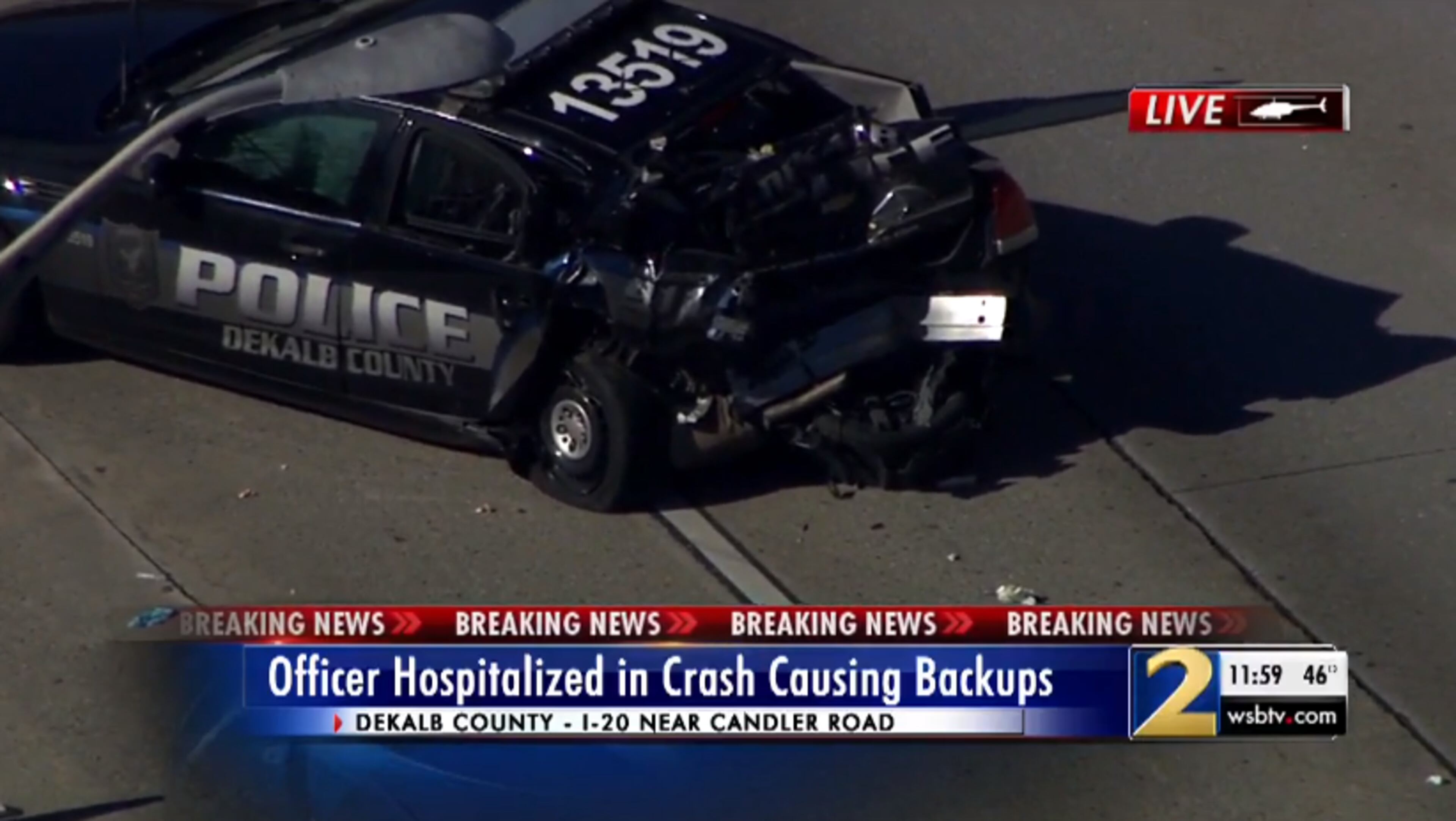Gridlock Guy: Trying to save time can hurt those trying to save lives
2020 is young, but one theme on the Atlanta roads is already resonating: safety and consideration. I already addressed this in the first Gridlock Guy column of the year, after seeing two egregious violations of this ethos at the end of 2019. Safety for first responders is a paramount message for AAA, as evidenced by their January 23 "Slow Down, Move Over" media event at the DeKalb Fire Rescue annex in Tucker.
“Emergency road assistance is at the core of AAA’s traffic safety mission,” said Garrett Townsend, Public Affairs Director for AAA Auto Club Group. AAA tow operators respond to more than 30 million calls nationwide each year. They often have to work on 4-foot shoulders.
Townsend said that 23 roadside workers of all disciplines die each year in the U.S., and errant crashes injure hundreds more. A tragic collision claimed one life in Georgia in 2019.
“These laws require that motorists slow down or move over one lane when approaching an incident where tow operators, police, firefighters, or emergency medical service crews are working at the roadside,” Townsend said. Drivers are required to move one lane over from the occupied shoulder. If traffic doesn’t allow for that, motorists must instead slow down below the posted speed limit.
The Georgia version of this law has been amended multiple times to include more types of roadside workers, including those in utility trucks. The maximum fine for this is $500.
Georgia Department of Transportation HERO Units certainly fall within the protection of this law and rightfully so. Roadside crashes tragically have claimed the lives of two HERO drivers. Georgia’s “Slow Down, Move Over Law” is named after operator Spencer Pass and state lawmakers moved to pass the first iteration of this law after Pass’ death at a roadside incident January 31, 2011. The nine-year anniversary of this tragedy just passed.
Driver Kirk Sherwood hit Pass on the I-85 bridge over Metropolitan Parkway. Though he didn't receive jail time, a judge gave him a year of probation, 240 hours of community service, and a $1300 fine. That punishment is light in the eyes of many, but Sherwood has had to carry that guilt ever since. Pass' family, friends, and coworkers lost. The broader responder community felt tension and empathy. Many people took the hit from Sherwood's lack of caution, including him.

GDOT named that I-85 bridge after Pass in 2016 as a reminder of the cost of this type of mistake.
Unfortunately, that reminder became ever clearer again on August 1, 2015, when a driver under the influence plowed into HERO operator Moses King. King was setting up a safety zone behind a crash on I-75/85/southbound, the Downtown Connector, south of 17th Street in Midtown in the dead of night. King suffered traumatic internal injuries and spent several months in a coma. He died in May of 2016.
King had been on the job about eight months and family members and coworkers, whom I met both in his hospital room and at the funeral home, told me that King was passionate about the job. King, Pass and many in their industry have maintained that fervor, despite the high risk and low pay. King died at age 44, Pass at just 45 years-old.
Other HERO operators have spoken to me off the record and shared pictures of minor damage on their trucks. Some have also been injured in these collisions. And this is just one phase in the spectrum of emergency responders.
A scary wreck on December 5 of last year could easily have killed a police officer on a routine traffic stop. A passerby rear-ended DeKalb Officer Yoseph Raskin's patrol car and then their SUV flipped on its side. Officer Raskin received only minor injuries and spoke at the recent AAA press conference.
“I’m lucky to be alive here,” Raskin solemnly and humbly told the crowd of officials, responders, and media. “My wife, my kids, never expected something like that to happen.” Just six weeks removed from the harrowing crash, Raskin is still recovering from a concussion and some back injuries that the distracted driver caused. That driver refused medical attention at the scene.
Townsend and AAA offer three tips to drivers. “Always remain alert, avoid distractions, and focus on the task at hand: driving,” Townsend said. They also want motorists to be on the lookout for emergency vehicles or even just disabled vehicles on the side of or in the roadway. And, expectedly, AAA strongly urges drivers on multi-lane highways to make the attempt to move out of the lane next to these workers and problems. On single-lane roads or when traffic doesn’t allow on a bigger road, drivers need to slow down, just as the laws say.
In the rush to the next destination, haste to answer a text, or determination to drive with a two-drink-buzz, mistakes are more likely. And these crashes are far more costly to those tasked with protecting our lives than the time drivers lose in the name of safety. Be safe and drive considerately.
Doug Turnbull, the PM drive Skycopter anchor for Triple Team Traffic on 95.5 WSB, is the Gridlock Guy. He also writes a traffic blog and hosts a podcast with Smilin' Mark McKay on wsbradio.com. Contact him at Doug.Turnbull@cmg.com.

